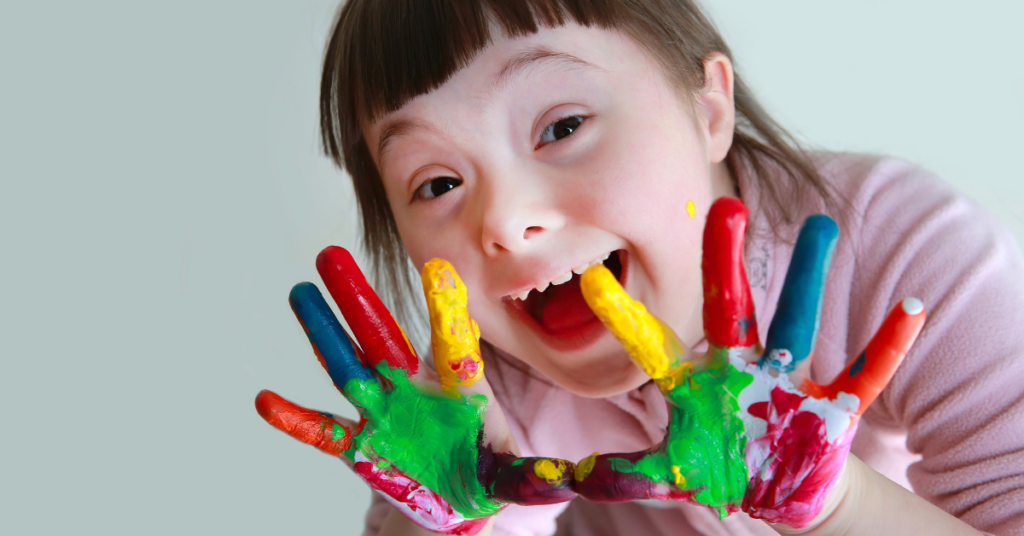Neurodevelopmental disorders
Intellectual Disability

Neurodevelopmental disorders
Intellectual Disability
- Home
- Intellectual disability
What is Intellectual disability?
Intellectual disability is a term used when there are limits to a person’s ability to learn at an expected level and function in daily life. Levels of intellectual disability vary greatly in children. Children with intellectual disabilities might have a hard time letting others know their wants and needs, and taking care of themselves. An intellectual disability could cause a child to learn and develop more slowly than other children of the same age. It could take longer for a child with an intellectual disability to learn to speak, walk, dress or eat without help, and they could have trouble learning in school.
The prognosis for Intellectual disability
According to the American Association of Intellectual and Developmental Disabilities, an individual has an intellectual disability if he or she meets three criteria:
- IQ is below 70-75
- There are significant limitations in two or more adaptive areas (skills that are needed to live, work, and play in the community, such as communication or self-care)
- The condition manifests itself before the age of 18
Treatments influence prognosis
Intellectual disability is a life-long condition and should be treated in a comprehensive manner. Nevertheless, currently, the fundamental task and perhaps the only one that applies is the detection of the limitation and abilities as a function of subjects’ age and expectations for the future, with the only goal being to provide the support necessary for each one of the dimensions or areas in which the child’s life is expressed and exposed.
1. Early detection and early signs
Early Treatment and support needs depend on social competence and cognitive function. Referral to an early intervention program during infancy may prevent or decrease the severity of a disability, improve functioning and enable the child to thrive throughout their lifetime. Realistic methods of caring for affected children must be established. Early and ongoing intervention yields better results as the first signs can be detected soon enough.
2. The diagnosis
Clinical judgment plays an important role in all aspects of the determination of ID. In fact, the clinician will consider evidence concerning each of the three diagnostic criteria, including any potential sources of assessment or measurement error:
- Significant limitations in intellectual functioning, which means a full-scale IQ standard score of approximately 2 (or more) standard deviations below the mean as measured with an appropriately-normed, standardized test of intelligence.
- Significant limitations in adaptive behavior, which means a standard score of approximately 2 (or more) standard deviations below the mean measured with an appropriate and standardized test of adaptive behavior in one or more of the following domains: conceptual, social, or practical skills.
The onset of both of the above limitations during the developmental period means that significant limitations in both intellectual functioning and adaptive behavior in the individual have manifested before the age of 22.
A. Causes of Intellectual disability
There are many different causes of intellectual disability. It can be associated with a genetic syndrome, such as Down syndrome and Fragile X syndrome. It may develop following an illness such as meningitis, whooping cough, or measles; may result from head trauma during childhood, or may result from exposure to toxins such as lead or mercury. Other factors that may contribute to intellectual disability include brain malformation, maternal disease, and environmental influences (alcohol, drugs, or other toxins). A variety of labor- and delivery-related events, infection during pregnancy, and problems at birth, such as not getting enough oxygen, can also contribute.
B. Common co-occurring conditions in Intellectual disability
Some mental health, neurodevelopmental, medical, and physical conditions frequently co-occur in individuals with intellectual disability, including cerebral palsy, epilepsy, ADHD, autism spectrum disorder, and depression and anxiety disorders. Identifying and diagnosing co-occurring conditions can be challenging, for example recognizing depression in an individual with limited verbal ability. However, accurate diagnosis and treatment are important for a healthy and fulfilling life for any individual.
- September 25, 2021
- 9:39 am





